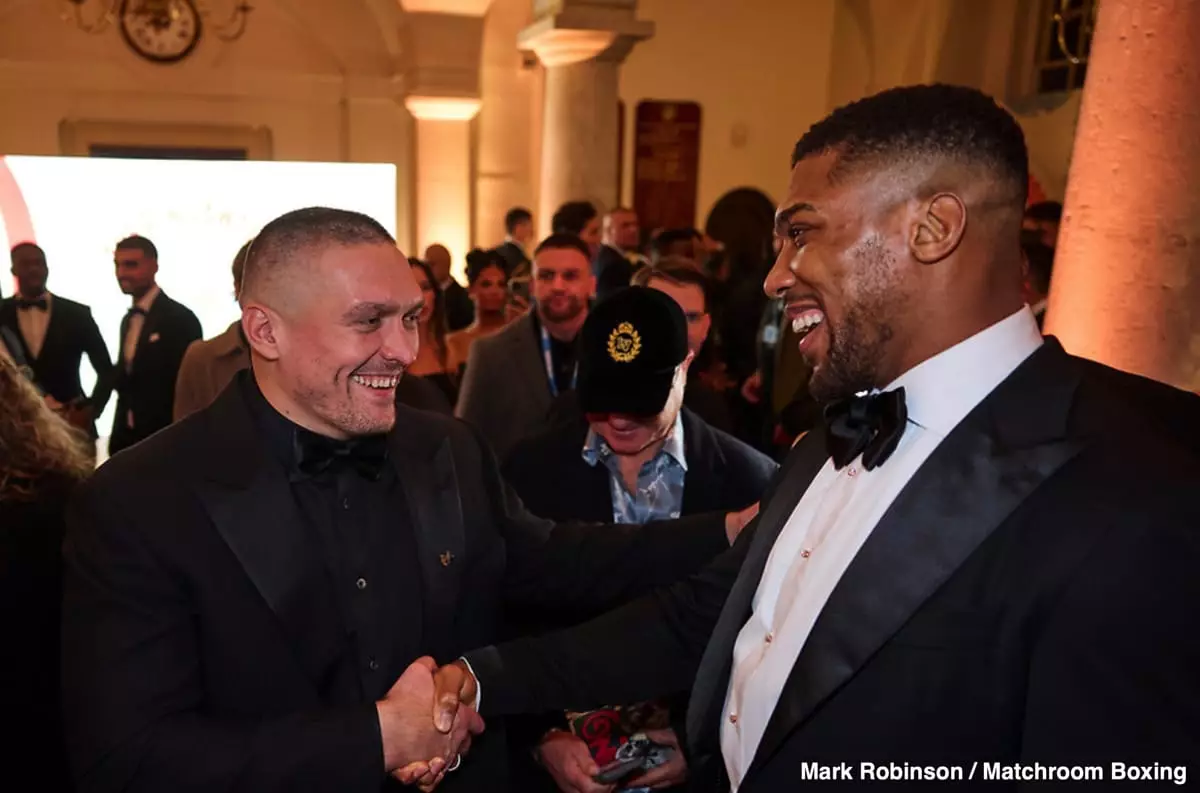The anticipation surrounding a potential fight between Anthony Joshua and Tyson Fury has been rife with excitement, confusion, and not a little bit of frustration. Fans around the globe, who have devoted over a decade of their lives to this dream match-up, find themselves grappling with the reality that it may never materialize. The stakes are high – not just for the fighters but for the legacy they leave behind. Just when the boxing community thought a breakthrough was near, Tyson Fury’s sudden announcement of retirement added another layer of complexity to an already muddled narrative.
For ardent boxing enthusiasts, a duel between Joshua and Fury is not merely a sporting event; it embodies the culmination of years of hopes and expectations. The idea that both fighters may never step into the ring together presents a profound concern: how will this impact their respective legacies? If the fight continues to be sidestepped due to personal decisions and external pressures, the fighters risk being viewed as unwilling to embrace one of the most significant challenges of their careers. This fear hovers like a dark cloud over their reputations, contributing to an uneasy perception that they might have let their followers down.
The implications of Fury’s recent performance against Oleksandr Usyk cannot be understated. The devastating loss, coupled with his abrupt retirement, raises questions about whether Fury’s mental resilience has been compromised. Such mental struggles are not uncommon in elite sports. The psychological toll of defeat can be tremendous, leading to self-doubt and a lack of motivation to continue. For a champion like Fury, who previously faced his own demons outside the ring, this newfound insecurity could potentially dictate the next steps in his career.
Eddie Hearn, a well-known promoter within the boxing community, has voiced skepticism about Fury’s retirement. His assertions suggest that Fury’s decision might be a strategic maneuver aimed at manipulating future financial opportunities—specifically regarding a potential showdown with Joshua. Hearn speculates that Fury craves the allure of a highly lucrative rematch, one that could offer more than just a financial incentive; it would serve as a chance for redemption, to reestablish himself on a grand scale.
The implication here is twofold. On one hand, it sheds light on the often mercenary nature of professional boxing; matches can become less about the sport and more about the finances involved. However, on the other, it reveals a deeper sentiment shared by Hearn—the belief that a true competitor would not so easily abandon the pursuit of victory. For Joshua, who is reeling from his own setbacks, the pressure is mounting. The looming prospect of a financially-driven comeback adds layers of difficulty for both athletes, as the narrative becomes as complex as their motivations.
Financial implications aside, the psychological ramifications of their recent defeats are crucial. Hearn elaborates on how athletes process loss differently depending on their individual mental fortitude and the circumstances surrounding each bout. Joshua’s defeat against Usyk serves as a telling example; the emotional investment in reclaiming a title is often astronomical. The weight of this pressure is not merely confined to a single match but can affect an athlete’s entire career trajectory.
Given the stakes involved—both financially and in terms of personal legacy—it is understandable that Fury’s mental state may be impacted by the pressures surrounding him. Fans and pundits alike must come to grips with the reality that the narrative is more complicated than it appears. Whether the allure of the ring and the thrill of competition will coax these giants back remains to be seen.
Ultimately, boxing is not merely a clash of fists; it is a psychological battleground where mental and emotional resilience often dictate the outcomes. The upcoming months will be pivotal, not just for Tyson Fury and Anthony Joshua, but for the legacy of boxing itself. Will the fire ignited by fan expectations drive these athletes to overcome their mental barriers? Or will fear and uncertainty dictate their next moves?
As the world watches closely, the unfolding saga of Joshua vs. Fury continues to evolve, characterized by an intricate dance of ambition, regret, and the unyielding desire for glory. For now, fans must confront a painful truth: until these titans confront their inner struggles, the dream match may remain just that—a dream, shadowed by indecision and lost opportunities.

